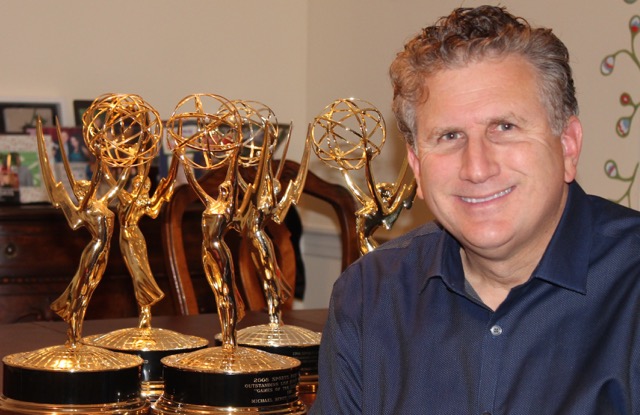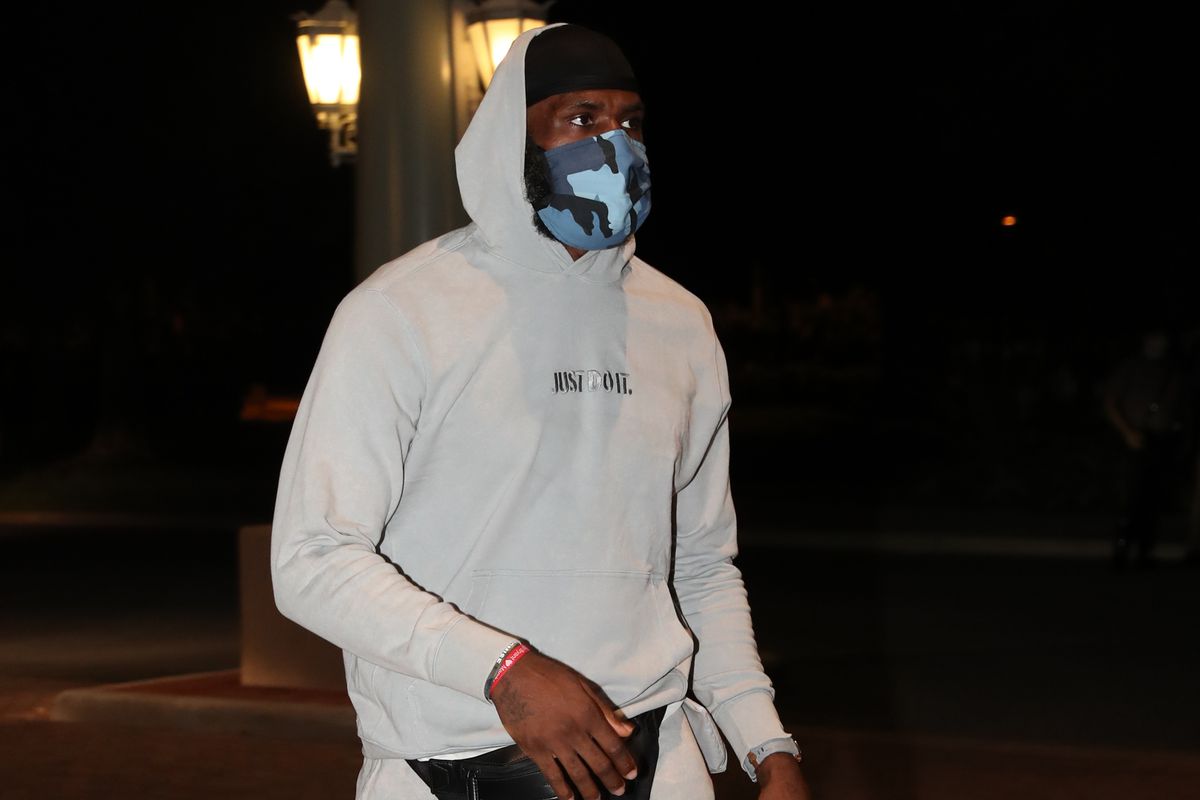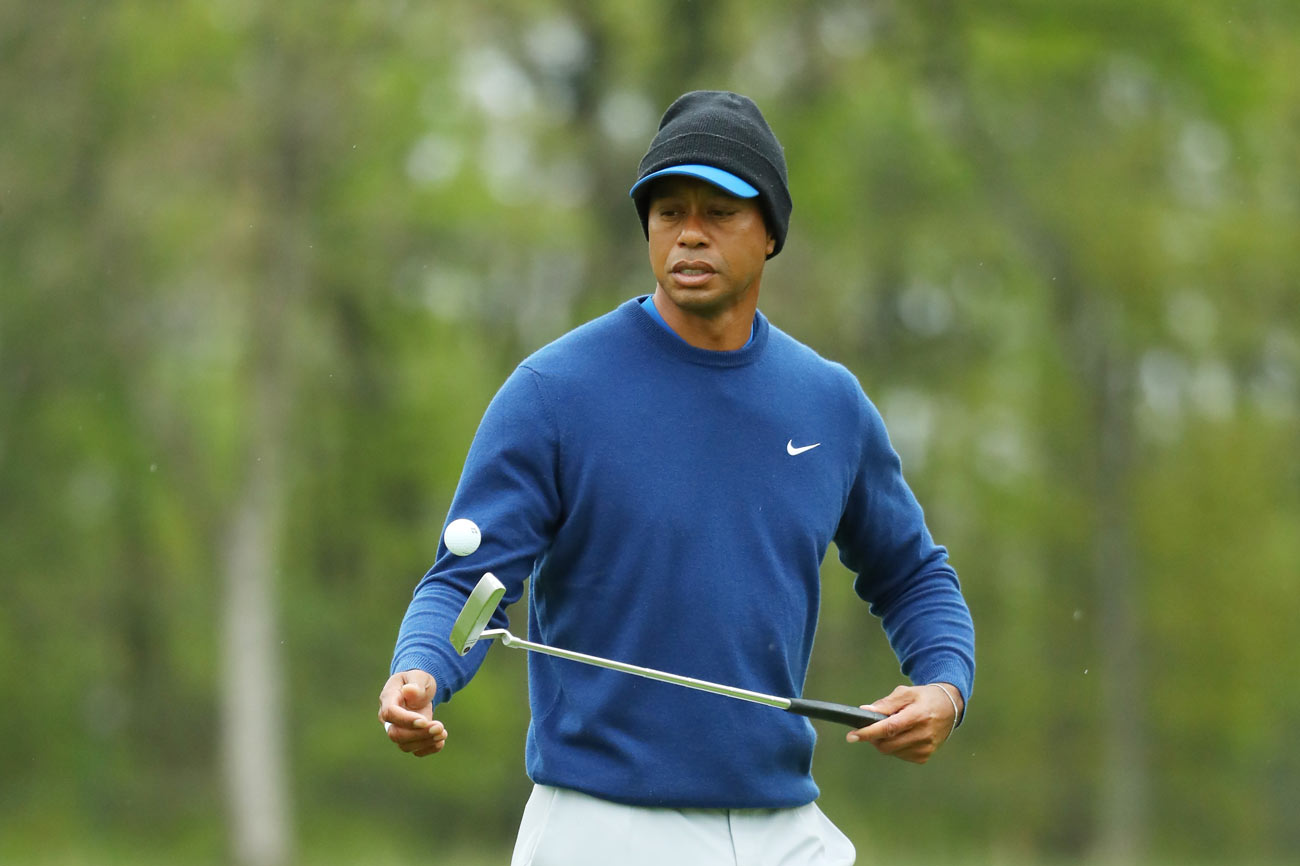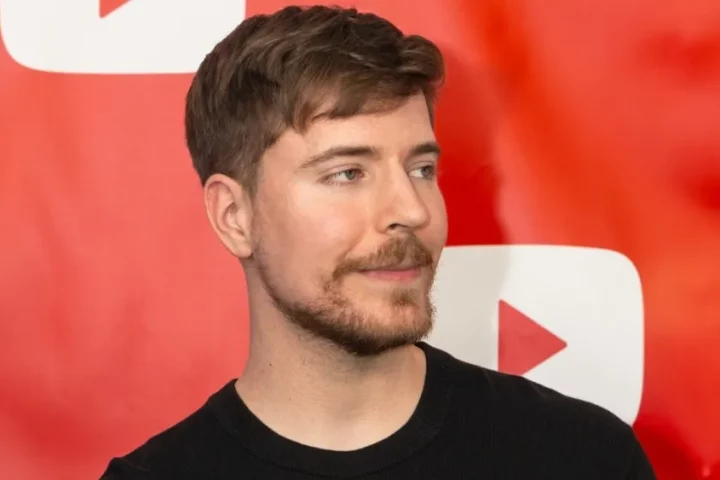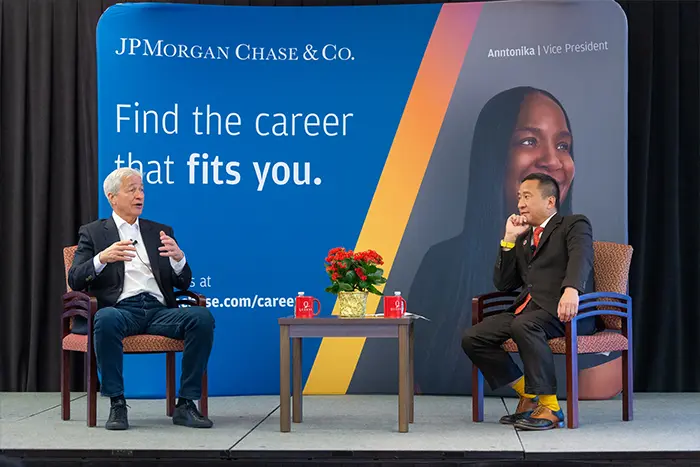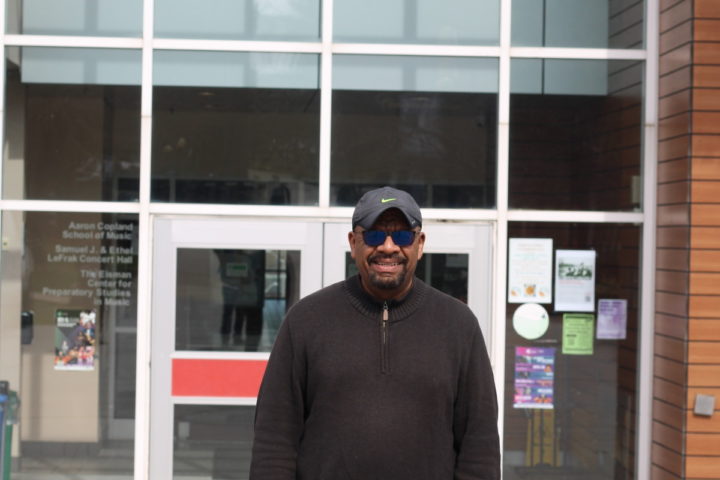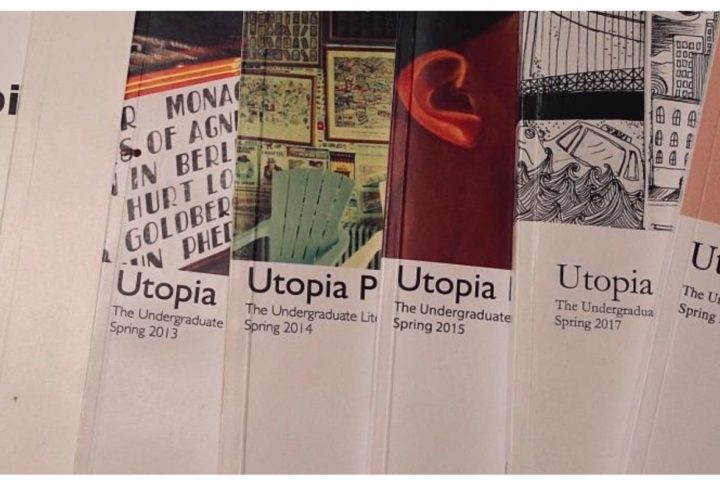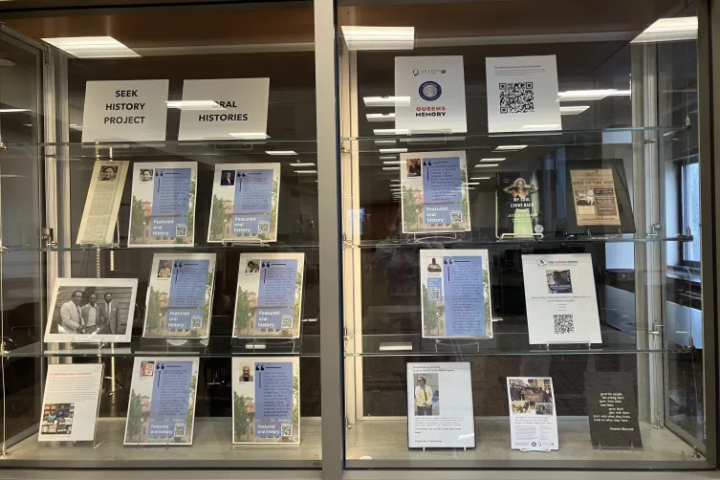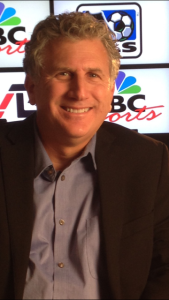
Michael Cohen is a producer and director for major networks like ESPN, NBC and FOX. He was head of production for two FIFA World Cups, producer for nine Olympics Games, nominated 15 times for the Emmys and produced the first-ever Extreme Games or X-Games.
He is also a Queens College professor.
Cohen graduated from QC in 1983. He came to the college in September 2014 to speak. Afterward, he worked with Michael Weisman, his business mentor, to create a class in the media studies department.
Cohen currently teaches a sports broadcasting class at the Campbell Dome on Thursdays from 10:05 a.m. to 1:00 p.m.
“I treat it as if I’m producing a show. I create a format, and every class I make sure I provide the top level of expertise or bring an expert to teach it with me so the students understand exactly what it takes to do the job at hand,” Cohen said. “It was important for me to bring back to the college my experience and professionals from the field.”
Guests brought by Cohen include President of Women’s Sports Foundation Angela Hucles, Senior Vice President of Global Media Tag Garson and ESPN SportsCenter anchor Max Bretos. His class also went to MSG Network’s studios.
“I’ve never taught any university, but I feel being a producer that you’re a teacher,” Cohen said.
Cohen grew up in Kew Garden Hills, Queens, and finished high school early. Despite initial interest in being a dentist, he was curious about media.
He interned at WNBC for their news division, but was not satisfied. He knew a lot about sports, so he approached a sportscaster and, after bothering him for several weeks, was allowed to work in the sports division.
That sportscaster’s name? Marv Albert.
After graduating from QC, Cohen freelanced with his experience and his NBC connections. In 1984, he got an interview with a young network called ESPN and was hired.
At first, Cohen’s job required him to log videotapes, screen games and time shows because ESPN did not have a big program inventory. He learned graphics coordinating, editing, producing and directing.
As ESPN grew, he was brought into ABC to make it more efficient. He worked on events like the 1988 Winter Olympics, the
1987 World Series, Super Bowl XXII, Indy 500 and the Kentucky Derby.
In 1989, Cohen created a company called Bizzy Signals Entertainment.
“I wanted the opportunity to package shows, so I didn’t just direct or produce for these companies. I would say to a network, instead of them hiring producers, directors and announcers for a particular show, they would hire my company to package programming. I basically delivered them a completed show,” Cohen said.
Cohen understood the importance of business with sports production. Because of his economic degree from QC, he was able to spend a budget effectively and efficiently.
“The great thing about this business is you get paid as you go. For example, if ESPN needs you to package a volleyball show, there’s a budget you use to get the best TV trucks and crew. You make your money on what you don’t spend,” Cohen said.
Cohen noted some producers may spend too little and not get a quality show. Other times, they may spend too much to get little back.
“It’s a fine balance between knowing how much to spend and how to do it cost efficiently as possible. Coming from ESPN, we only knew how to produce efficient television so it was an advantage.”
Finances are not the only worry. Producers must plan the show for days or even weeks.
But, when covering live sports, there is no script. For example, an underdog player could score two touchdowns in the first seven minutes of the game.
“Being a live producer is like being an orchestra conductor. You’re pulling together all the pieces, technical pieces, and making sure they all work in sync,” Cohen said. “The producer is like the general manager and the director is the head coach. The head coach executes the game plan, while the general manager makes sure they have the right personnel on the field.”
Cohen said travel was one challenging aspect of the job. Events happen everywhere and it could affect a work-life balance.
“It’s a lot easier to travel when you’re young and have more energy. You do give up a little of your social life, but you have to be committed. You miss birthdays and holidays. What keeps me going, when that happens, is I love what I do,” Cohen said.
Working is not the usual nine-to-five job for Cohen.
“I probably work about 10 to 12 hours on a one show every day. When you’re at an event, you work for as long as you need. You could work 15 to 16-hour days,” Cohen said.
But Cohen’s favorite part of the job? Creating.
“It’s not just about creating television shows, but creating franchises. You create these franchises and you want to build something to last,” Cohen said.
Cohen is a huge fan of soccer and, after the success of the X-Games, became the first producer of Major League Soccer on ABC/ESPN until 2001. A year later, he became executive producer for the 2002 FIFA World Cup in South Korea and Japan.
“This World Cup was one of my favorite events because of all the challenges it took to pull it off were massive. Soccer wasn’t what it was today so it was a big event, but we didn’t have a big budget. We had to cover 64 matches in two countries,” Cohen said.
Despite winning the Emmys eight times, Cohen felt the nomination of the 2006 World Cup in Germany for Outstanding Live Sports Special was a meaningful one, even if it didn’t win.
“Soccer had never received a nomination in any format of any kind and, despite not winning that year, we got nominated. We thought it was an unbelievable statement that soccer made it. It arrived,” Cohen said.
Cohen is preparing for the 2018 World Cup in Russia and is helping athletes build their media presence.
“I came from Queens College, and I know a lot of other people that came from QC. If you work hard and make your own opportunities, there is nothing you can’t do,” Cohen said.
Five pieces of advice from Michael Cohen
1) “Best advice I ever received was ‘listen to everyone.’ You never know where the next best advice is going to come from.” 2) “So many people are afraid. They’re so rigid on how they do things, but it’s okay to take chances because you may fail, but you could also strike gold.” 3) “When you love what you do, and you can get up excited to do it, that’s worth everything. Students should go with their passions.” 4) There are more opportunities now than there was when I started. You can produce anything uou want. The entry point is a lot easier, but the competition is greater.” 5) Show your commitment. Show your drive, always be the last one out of the office, and always be the one that volunteers to do whatever needs to be done.”


